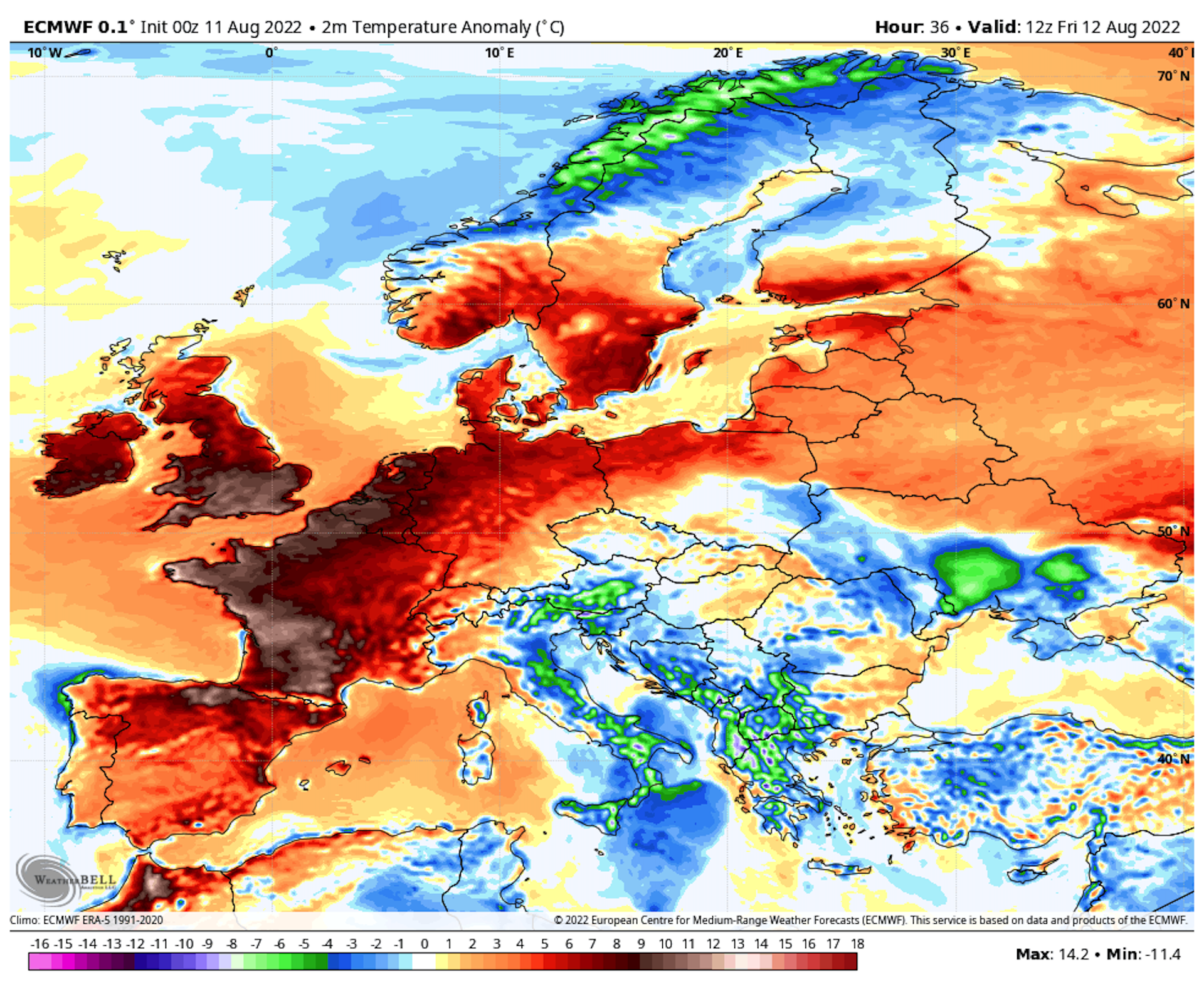This is the summer that climate change impacts are becoming overwhelmingly obvious and costly across much of Europe.
The big picture: Western Europe's fourth region-wide, fierce heat wave of the summer is well underway.
- It's pushing temperatures into the triple digits Fahrenheit in Portugal, Spain, and France, and close to that level in the United Kingdom.
- French firefighters are battling a nearly 20,000-acre blaze in the Gironde region that has forced thousands from their homes, while other fires burn elsewhere in the heat-affected regions.
- That wildfire, burning in pine forests south of Bordeaux, has required the deployment of at least 1,000 firefighters, according to Reuters, with more resources on the way.
- Temperatures in the region are forecast to exceed 100°F Thursday and Friday along with low relative humidity levels, making firefighting conditions extremely challenging.
Threat level: In the U.K., where temperatures are forecast to soar into the mid-to-upper 90s today through Sunday, the Met Office has hoisted an Amber "Extreme Heat Warning" through the period.
- The fire danger in southeast England is forecast to reach its two highest categories, "very high" to "exceptional," with authorities warning that they may not be able to respond to every call.
- During the record-breaking heat wave in July, fires swept through parts of London and London's mayor said it was the busiest day for fire crews since World War II.
- Grasses in and around London are tinderbox dry, firefighters warn, and could ignite with the slightest spark, spreading rapidly in heat and drought conditions.
Context: Much of Europe is in the middle of an intense drought, which the heat will only worsen. French officials have called that country's drought, which has knocked some nuclear power plants that rely on river water to cool their reactors offline.

- July was France's driest month on record dating back to 1959, and southern England is setting drought records as well.
- In Germany, the Rhine River has hit such low levels that the viability of this crucial cargo artery, which carries commodities and energy supplies like coal and diesel fuel, is threatened.
- This summer has also seen rapid and extensive melting of mountain glaciers across Europe, including the Swiss Alps.
- According to the AP, in Valais, Switzerland, melting glaciers revealed parts of a plane that had crashed there long ago, as well as at least two skeletons in separate locations.
Of note: The heat and drought conditions are reducing crop productivity, cutting the harvest of key commodities at a time when food supplies are strained worldwide and prices are elevated due to Russia's unprovoked invasion of Ukraine.
Context: Heat waves are more likely to occur, more intense, and longer lasting due to human-caused climate change.
- A study published following the extreme heat in England last month found that climate change made the event at least 10 times as likely than it would have been in preindustrial times.
- It also found that the heat wave's average temperatures were at least 2°C (3.6°F) milder than they would have been in a world without today's high atmospheric concentrations of greenhouse gases, but observational data supports an even greater figure of a 4°C (7°F) difference.
Go deeper: Drought threatens 60% of EU and U.K. as Europe faces "critical situation"







